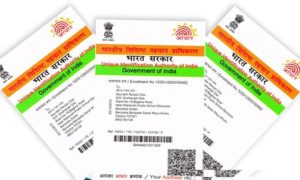There are many uncertainties in life, and medical emergencies are one of them and therefore, you must have one health insurance policy.
New Delhi: It’s very important to get an insurance policy for you and your family, but before that, it’s important to know what exactly it means and how it works. Health insurance is an essential source of financial security for you and your family. Knowing the important details about the health insurance policy before buying it will enable you to choose a plan that meets your needs and budget.
There are many uncertainties in life, and medical emergencies are one of them. Purchasing a health insurance policy is all but necessary due to India’s rising healthcare costs. Finding an insurance plan that would be the best fit for you might be difficult, though, because there are so many options available. But don’t worry; we have got you covered. In this article, we will provide you with the five essential things you must know before taking out any health insurance.
Also Read- HDFC To Bank Of Maharashtra, Check Banks With Home Loans At Lowest Interest Rates
Right Combination Of Coverage And Premium
Purchasing health insurance at the most affordable price might be profitable. However, it may have two sides. A policy with a lower premium may be beneficial if it provides comprehensive coverage at a price you can afford. Finding out why a premium is lower is therefore the best course of action because it shouldn’t come at the expense of insurance coverage. Before taking out a policy, make sure there aren’t any additional co-payment, deductible, or sub-limit provisions, since if there are, you’ll wind up paying more when you file a claim.
Waiting Period
There is a waiting period that must pass before you can submit a claim for any or all benefits under your health insurance plan. Each company will have different policies regarding this waiting period. You must note that, with the exception of unintentional hospitalisation, there is often a 30-day initial waiting period before you may begin making use of your health insurance. Additionally, there are certain waiting periods for benefits related to maternity care, pre-existing conditions, and a few other conditions.
Also Read– Tomato Prices Likely To Go Up To Rs 300 Per Kg In Coming Weeks
Cashless Claims
With cashless health insurance, your health insurer will pay the hospital costs after you receive the necessary care at a Network Hospital, as opposed to after your treatments, when you would typically receive reimbursement from your health insurer. You don’t have to spend any money that you don’t already have. The costs will be handled between the hospital and your insurance provider; all you need is agreement from your insurer or third-party administrator.
Coverage Before and After
The majority of health insurance plans include coverage for hospital-related medical costs. To avoid paying for ambulance fees, medical tests, medications, doctor fees, and other costs, get a plan that also covers costs incurred before and after hospitalisation.
Also Read- New GST Rules: 28% Tax on Online Gaming | Know How It Works in US, UK Among Other Countries
Room Rent Limit
The cost of a hospital’s room rent may seem insignificant, but depending on the facility, it may be astronomical. If the patient is admitted to a room that is more expensive than what is permitted, the cost of the treatment could increase. The maximum amount of room rent covered by a health insurance policy is indicated by the policy’s “room rent limit.” If the policyholder chooses a hospital room with a higher rent, he will be responsible for paying a proportionate percentage of the total hospital expense.





































